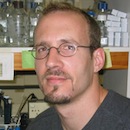Academic Editors
The following people constitute the Editorial Board of Academic Editors for PeerJ. These active academics are the Editors who seek peer reviewers, evaluate their responses, and make editorial decisions on each submission to the journal. Learn more about becoming an Editor.

Jürg Bähler
Jürg Bähler is a Professor of Systems Biology at University College London. His laboratory studies genome regulation during cellular proliferation, quiescence, and ageing using fission yeast (Schizosaccharomyces pombe) as a model system. They apply multiple genetic, computational and genome-wide approaches for systems-level understanding of regulatory processes and complex relationships between genotype, phenotype, and environment, including roles of genome variation and evolution, transcriptome regulation, and non-coding RNAs.
Jürg Bähler is an elected Member of the European Molecular Biology Organisation (EMBO) and a Fellow of the Royal Society of Biology, and he received a Wellcome Trust Senior Investigator Award and a Royal Society Wolfson Research Merit Award.

Alexis Verger
Senior Molecular Biologist (CR1 CNRS) at the Interdisciplinary Research Institute (IRI) - Lille 1 University - France.
My lab studies how human genes can be turned on and off by transcription factors. We investigate the fundamental mechanisms underlying specific gene control in the context of diseases, such as cancer.

Arif J Siddiqui
Dr. Arif Jamal Siddiqui is an Associate Professor and Principal Investigator at the Department of Biology, College of Science, University of Hail, Saudi Arabia. He received his PhD from CSIR-Central Drug Research Institute, Lucknow, India in 2015. From 2015 to 2018, he worked as a Post-Doctoral Fellow at Texas Tech University Health Sciences Center, Lubbock, Texas, United States of America.
He has more than 8 years of experience in research, teaching and administration. In his professional work, he has received research grants as a Principal Investigator from various renowned organizations. He has successfully published more than 100 publications in internationally recognized peer-reviewed prestigious journals, published several book chapters for internationally renowned publishers and presented many articles and posters in various conferences/workshops worldwide. He has published numerous papers in the fields of parasitology, immunology, herbal medicine, vaccine development, drug discovery and natural products with a specialization in anti-parasitic, antiviral, anticancer and antibacterial agents. Furthermore, he is a member of The Indian Science Congress Association, India and the Annals of Parasitology, Poland. He has reviewed more than 250 manuscripts and he also currently holds various editorial positions (Academic, Associate, Guest and Review Editor) in various reputable journals and has edited more than 150 manuscripts.

Huashan Shi
Professor Shi Huashan is an Associate Professor at Sichuan University. His expertise is in the molecular biology of tumours and tumour transcriptomics. He is currently engaged in clinical and basic translational research, including tumour microenvironment and novel immunotherapeutic modalities, and research on the mechanisms and medical applications related to tumour cell vaccines.

Jianye Ge
Dr. Jianye Ge is the Associate Director of the Center for Human Identification and an Associate Professor in the Department of Microbiology, Immunology & Genetics at the University of North Texas Health Science Center. His research relates primarily to forensic genetics, bioinformatics, and data mining. The software programs he developed have been used by the Federal and State government agencies to assist in solving criminal cases.

Jacqueline Batley
Professor in the School of Biological Sciences, University of Western Australia. I hold an Australian Research Council Future Fellowship. Research interests include plant-pathogen interactions, crop genetics and genomics, genome sequencing, Brassicas, structural variation, diversity genomics, methylation

Michael S. Singer
Professor of Biology and Environmental Studies at Wesleyan University. Research focus on the role of tri-trophic interactions in evolutionary, community, and food web ecology. Additional specific expertise in plant-insect interactions and Lepidoptera.

Darren Norris
Lecturer at the Federal University of Amapá, Brazil. My research interests are broad and are currently focused on the conservation of biodiversity and traditional livelihoods around waterways that traverse political (national and international), cultural and ecological boundaries. I am particularly interested in inter-disciplinary approaches, comprising population and community ecology, population biology, landscape and spatial statistics.

William J Brazelton
Associate Professor, School of Biological Sciences, University of Utah.

Richard D Emes
Professor of Bioinformatics at Nottingham School of Veterinary Medicine and Science and Director of the University of Nottingham Advanced Data Analysis Centre.
Research interests are in bioinformatics, comparative genomics and molecular evolution particularly in the fields of pathogen biology, epigenetics and neurobiology.

Tamar Guy-Haim
My main research interests are marine biodiversity and biogeography, with particular emphasis on species interactions, bioinvasions, and climate change. I use multidisciplinary approaches and combine experimental ecology, physiology, biogeochemistry, phylogeny, and modeling.

Vanessa R Yingling
Dr. Yingling is a professor in the Department of Kinesiology at California State University, East Bay. Her undergraduate degree was in Bioengineering from the University of California-San Diego. She obtained her master’s degree in Exercise Science from the University at Buffalo and her Ph.D. in Kinesiology (Biomechanics) from the University of Waterloo, Ontario, Canada. She trained as a post-doctoral fellow for 2 years in the Department of Orthopaedic Surgery at Washington University School of Medicine in St. Louis. Dr. Yingling’s research interest is “How to grow a strong skeleton - The effect of exercise and loading on bone structure and strength. Her research has been funded by the National Institutes of Health.

